If this question “do rabbits eat hostas?” always roams through your mind, you’re not alone. I found the rabbit and hosta relationship very uncanny. They are attracted to each other, even when they don’t benefit in the long-run. Poor creatures!
This article will answer all your questions and show you how to keep your rabbit’s belly full and hearts at home.
Why are Rabbits Attracted to Hostas?
Have you ever walked past a garden and seen gorgeous, broad, heart-shaped leaves lying in clusters? Those are hostas. They are decorative plants often planted in gardens or beside homes. People often plant hostas to make their environments beautiful.
However, rabbits feed on hostas all the time. If you plant hostas in your home and have rabbits around, don’t be surprised when you find them nibbling some or all of the leaves. They eat the plant’s stem, leaves, and flowers. They might even eat the roots if it’s tender enough.
Rabbits love eating hostas because it provides shelter and food. The leaves are soft, and hostas generally contain vital nutrients that rabbits need for their diet, such as proteins, vitamins, and carbs.
Lastly, hostas grow in shade, so what better place for rabbits to chill and eat juicy leaves with a roof over their heads than under hostas?
What Nutritional Value Does Hostas Offer?
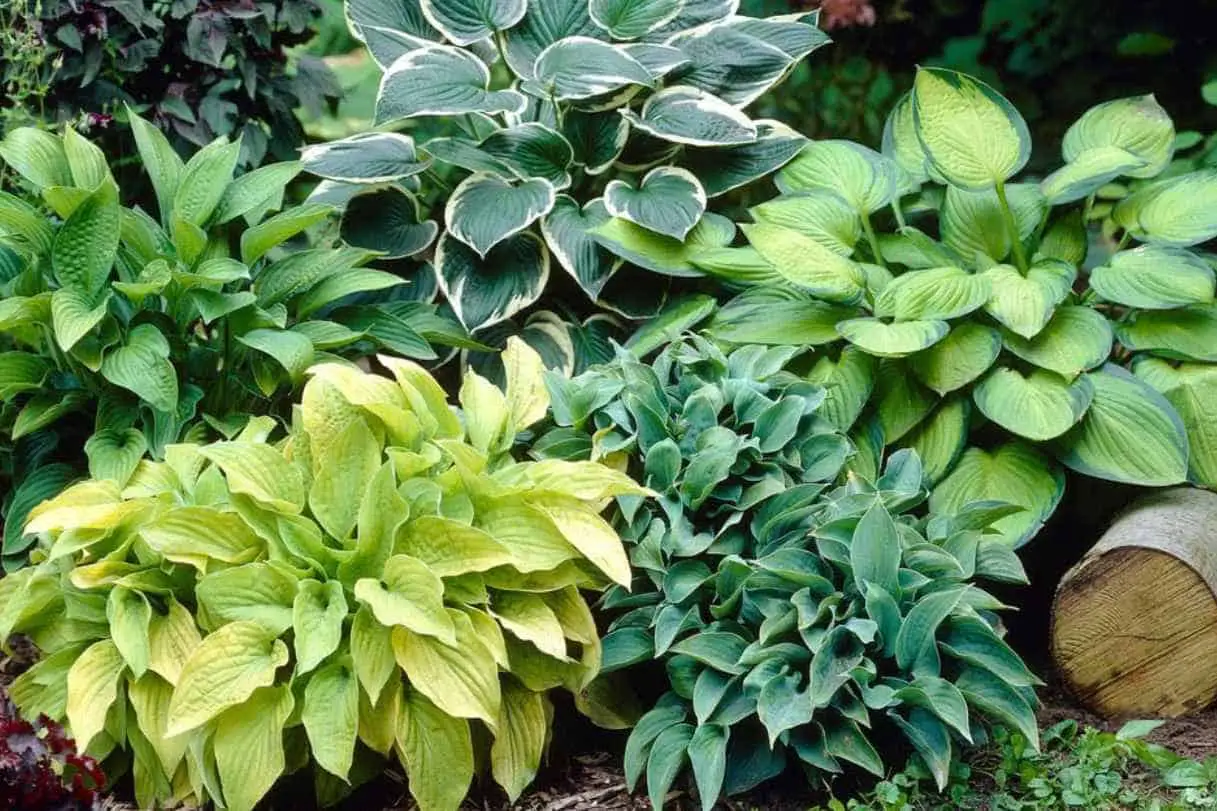
Hostas have nutrients, like calcium, phosphorus, vitamins, and potassium. If rabbits eat hostas in moderation, they can get sufficient nutrients for their body. Furthermore, its protein content fixes tissues, helps rabbits secrete more hormones, and protect their bodies from diseases and ailments.
Why are Hostas Bad For Your Rabbit?
You may wonder, ‘If hostas contain all these essential nutrients and are good for my rabbit’s body, why are they bad?’ Beautiful question. Rabbits are not human beings. The problem lies in excess, which almost all animals are prone to.
Digestive Problems
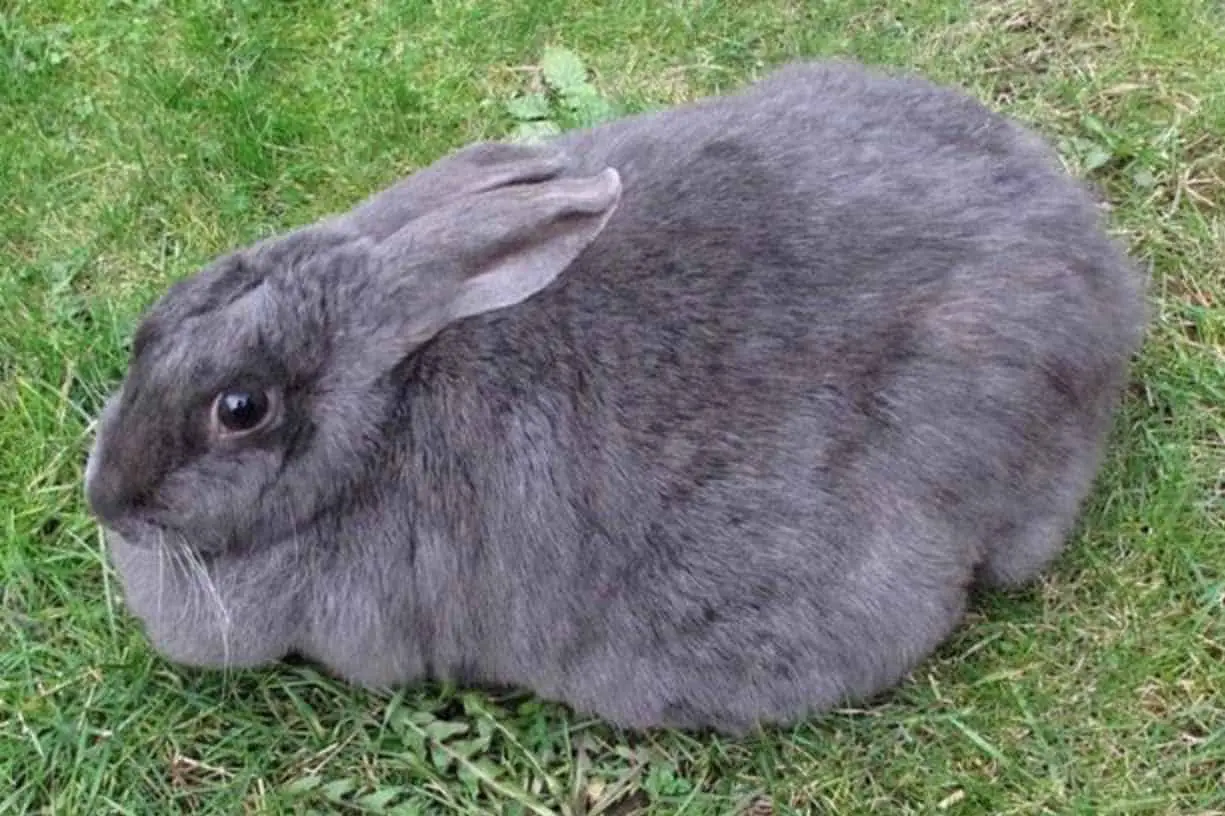
You may think, “Oh well, the rabbit can just stop when it’s full” Unfortunately, that’s not how rabbits think. I wish they did..
Close your eyes. Imagine eating your favorite meal and not stopping until you’re full, bloated, and tired. You know how it feels, right? That’s exactly what happens when rabbits feed on hostas.
They have little to no control over how they eat when they enjoy something. It could cause several digestive issues for them over time that you will pay dearly for.
Their tracts are sensitive, so they only need fiber-rich foods. If they must eat hostas, it should be once in a while, not a statutory food.
Gives Them Diarrhea
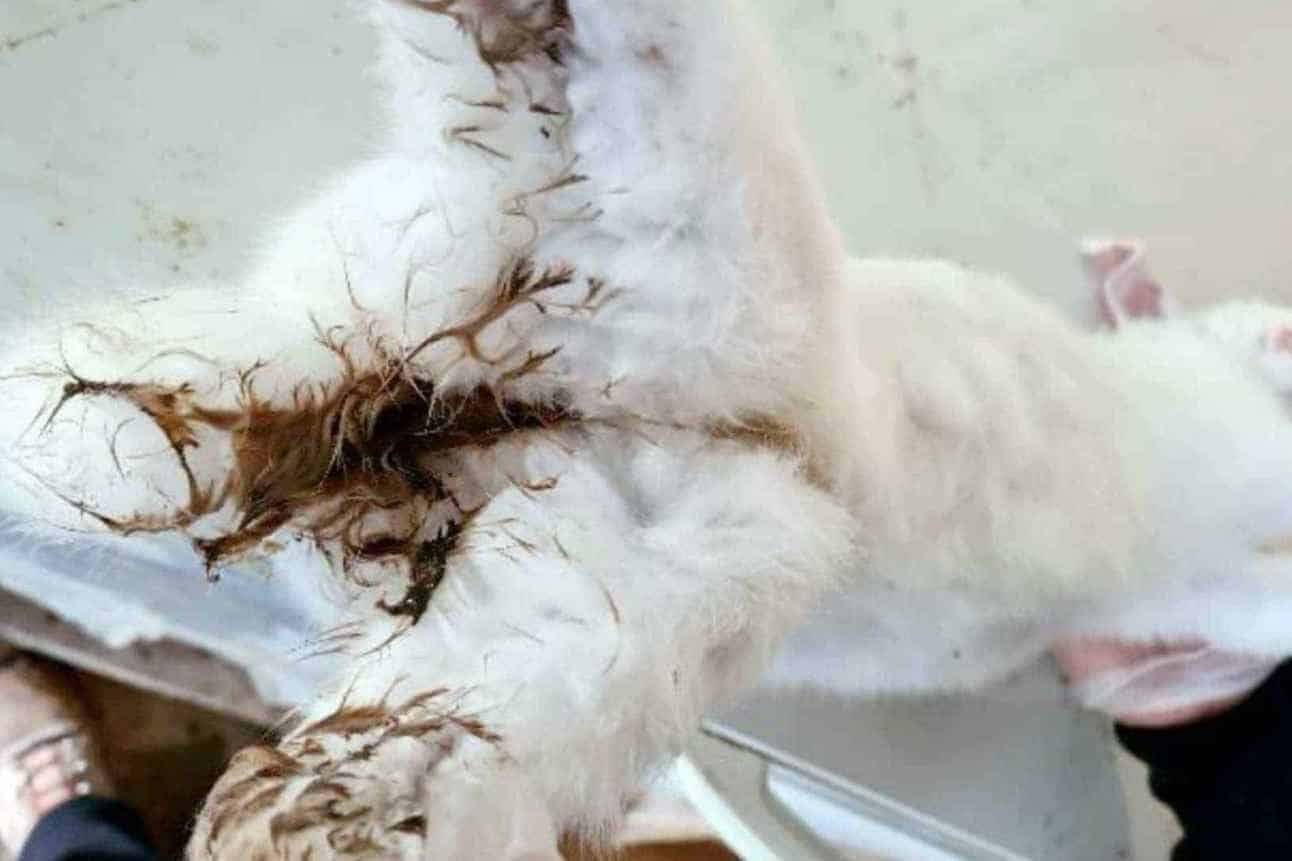
It’s not uncommon to see rabbits and other rodents have diarrhea. Food poisoning and malnutrition often cause this disease.
How do rabbits often get this disease? When they excessively eat food that is carbohydrate-rich but fiber-deficient. If you look closely, you can decipher when your rabbit is uncomfortable or acting funny. Diarrhea tells you that the stomach has an issue you must address.
What common diarrhea signs should you look out for if your rabbit is acting weird? Look out for watery stool and dehydration. Not paying attention to this disease can lead to dire consequences, and even death. Yes, your rabbit can die.
Ingestion of Toxic Chemicals
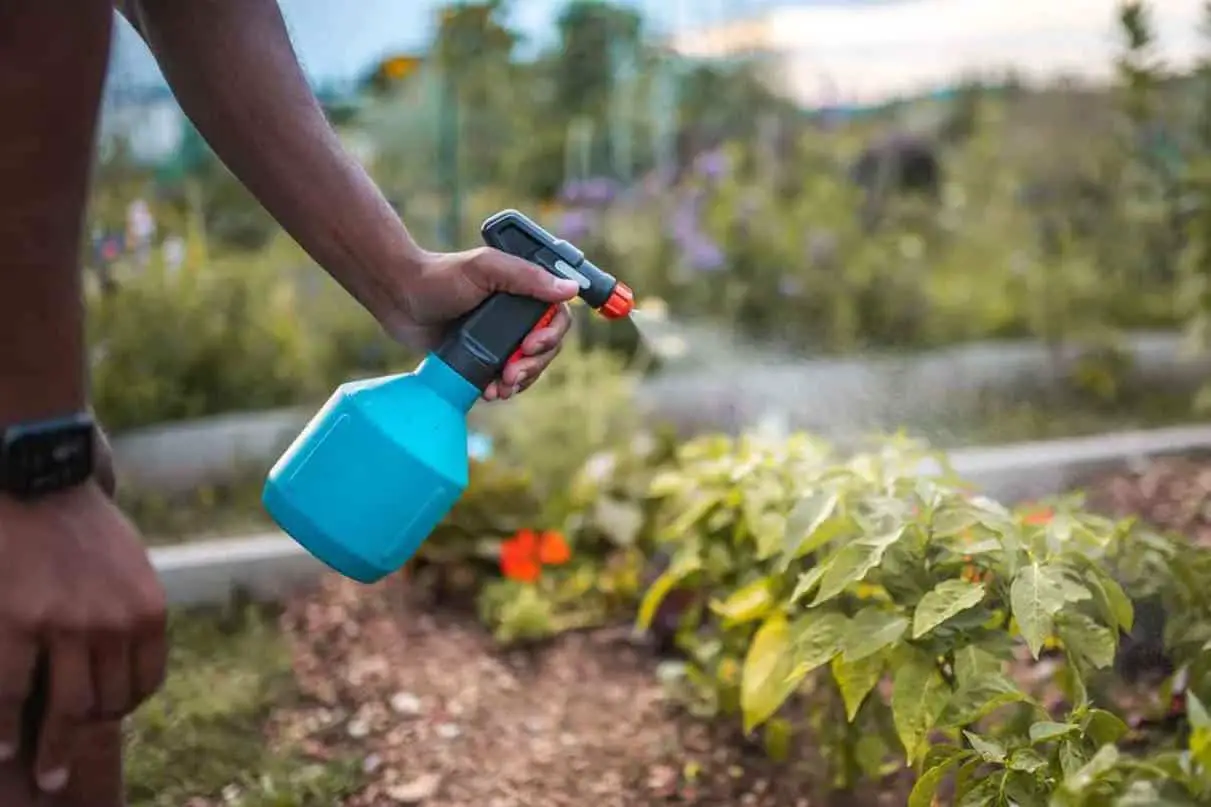
When farmers or homeowners spray their environments, some people think that the insecticides or pesticides immediately disappear. I laugh when I hear such statements. Hostas can retain some of these toxic chemicals. They may not be affected but the animals that eat them may be.
When rabbits feed on such plants, they can consume some of these toxic chemicals and have health complications in the long-run, like bleeding and intestinal inflammation. Meanwhile, the hostas are living fine and healthy.
How to Stop Rabbits from Eating Hostas Like An Expert
Try these tips and your rabbits won’t eat hostas ever again:
Scent Deterrents
You can use specific scent deterrents with repulsive odors, to keep rabbits off from hostas. All you have to do is sprinkle or position these scents at strategic positions around these hostas, and your rabbit will stay away.
Note: scent deterrents exist in three forms- organic, chemical, and homemade. Organic deterrents aren’t made with any chemicals whatsoever, thereby safe for use when kids and other pets are around.
Chemical deterrents, however, are made with heavy chemicals that are more powerful than organic deterrents but can harm pets and kids. If you have children or pets that often roam the place, you may want to think twice about this.
Finally, homemade deterrents are made with no artificial chemicals. Purely natural, organic, and cost-effective. They are eco-friendly and safe for kids and pets, but you may have to reapply them consistently since they aren’t as potent as chemical deterrents.
Scarecrow and Decoy Animals
Rabbits are sensitive and jittery creatures. Once they sense any threat, they run as fast as their speed allows.
Fortunately for us, these creatures don’t have developed the sense to know when a threat is real or fake. Use this to your advantage. Place scarecrows and decoy animals like fake snakes, owls, or cats at strategic points to chase them away.
Once the rabbit sees it, it will run away and leave the hostas alone. However, one mistake people make is that they think that the scarecrow or decoy animals will scare the rabbit forever. At some point, the rabbit will sense that the scarecrow doesn’t pose any real threat, and will pass by it to eat the hostas.
You must constantly upgrade the scarecrows or change their position constantly to stop this.
Physical and Electric Barriers
This technique is as old as time. Several types of physical barriers exist, but fencing is the most popular. When constructing your fences, ensure they’re not below three feet. The materials used must be strong, and the poles upright, otherwise the rabbits will knock them down quickly.
Also, you must bury your poles deep into the ground because there is nothing rabbits love more than digging shallow fences. Building a fence around hostas will make it almost impossible for your rabbit to reach and feed on them.
How to install a chain link fence:
Electric barriers came into the picture in modern times. When you install these barriers, and the rabbit comes in contact with them, it gets shocked. If this happens constantly, the rabbits will learn to stay away. However, always set the voltage super low, strong enough to chase them away, but not harm them.
How to install an electric fence like a pro:
Keep Your Garden Tidy
Always keep your garden clean and debris-free to eliminate pests and unwanted rodents. In most cases, rabbits run off to gardens because the overgrown bushes provide shelter and warmth. If you want them to stay clear, always ensure the garden is clean and the bush is duly trimmed.
Also, eliminate unnecessary things that clutter the garden and prevent sufficient light and air from entering.
Create a Separate Feeding Area
To prevent your rabbit from eating hostas, ensure that their feeding area is separate and secluded. They shouldn’t be allowed to roam freely and eat wherever they want. Over time, they will get accustomed to eating in a particular space.
How to Create the Perfect Diet For Your Rabbits
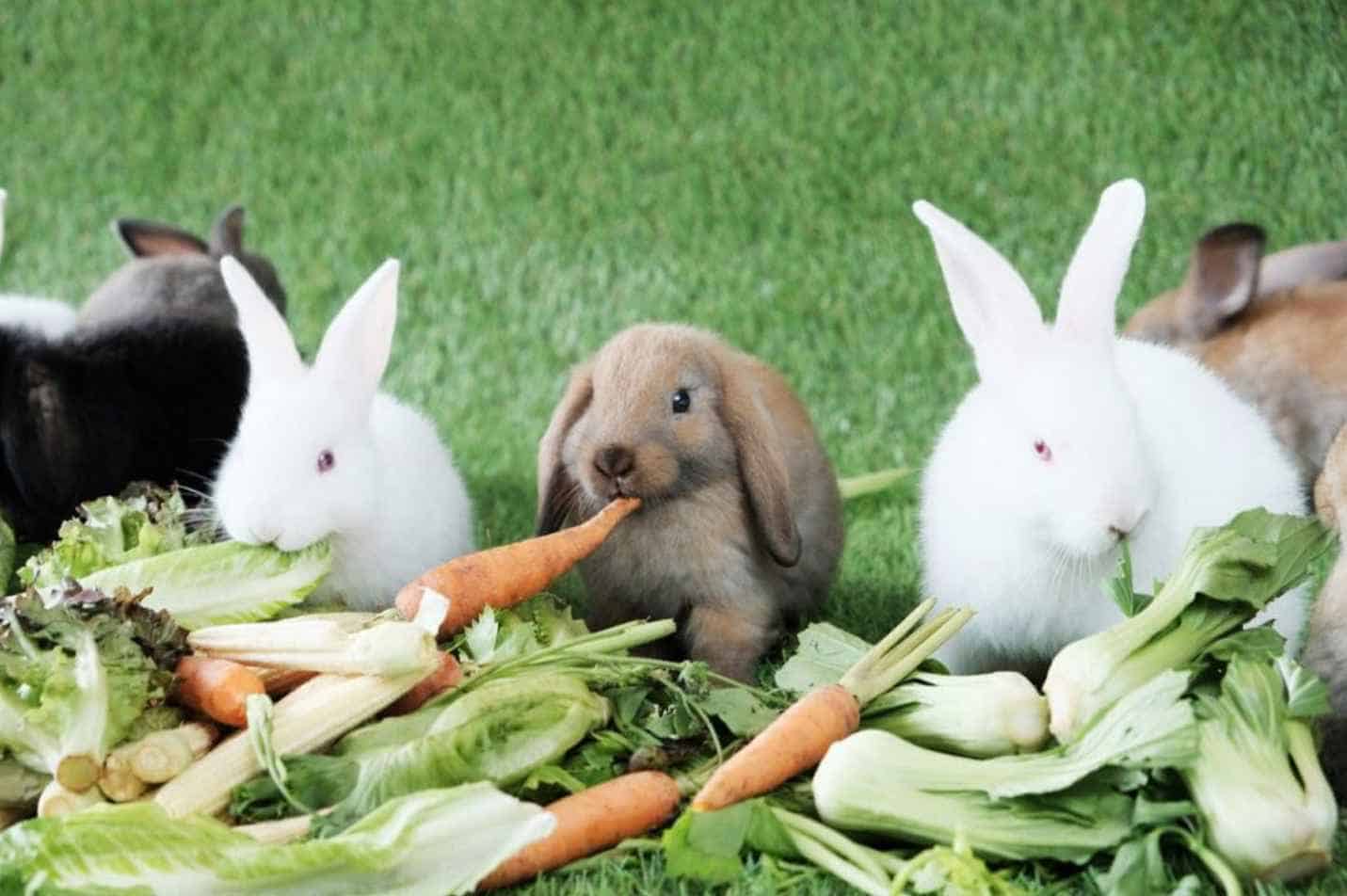
Feeding your rabbits properly reduces their dependency on hostas. Here’s how to ensure that their diet is adequate:
Use Quality Hay
Do you remember when we said rabbits need fiber-rich foods to aid digestion? Yes. Quality hay provides them with sufficient fiber to aid digestion and optimize gut health.
Hay also improves their dental health because their teeth constantly grow, no matter how old they get. Chewing quality hay prevents their teeth from getting overgrown.
Note that not all hay is appropriate for your rabbit. I highly recommend Timothy Hay.
Water, Fresh Fruits, and Vegetables
Your rabbit’s ideal diet must include water, fresh fruits, and vegetables. Some recommended fresh vegetables and greens include celery, kale, parsley, broccoli, and cabbage.
Such green plants should make up the bulk of their diet because it provides the vital nutrients they need for growth. Provide your rabbits with clean water always for general nourishment and easy digestion.
Hay Pellets
If you can’t access quality hay, you can make do with hay pellets. They are convenient, easy to measure, and store. These pellets also provide the right nutritional balance, like their counterparts.
What Foods Can Your Rabbit Eat?
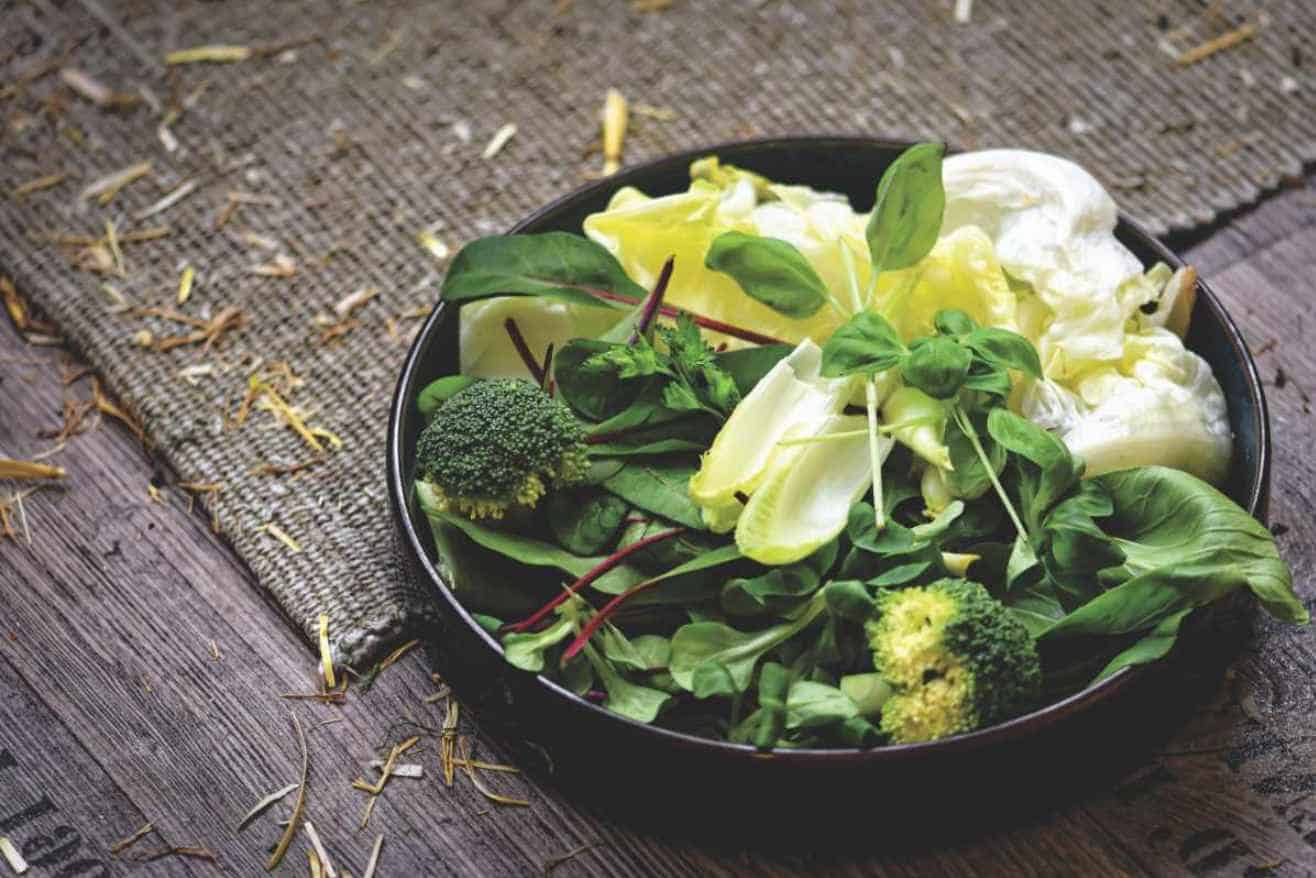
Here are superb food options your rabbit can eat all day long:
- Cabbage
- Carrots
- Spinach
- Pineapple
- Bell Peppers
- Broccoli
- Fennel
- Grapes
- Banana
- Brussel Sprouts
- Apple
- Melon
- Strawberry
- Red Leaf
- Peach
Frequently Asked Questions (FAQs)
What Plants Do Rabbits Detest?
Blood meal, garlic, geranium, lavender, chives, and vinegar, need I say more? Their sense of smell is solid.
Are Hostas Toxic to Rabbits?
No, they’re not. The rabbit just needs to eat it moderately. Excessive eating can harm their health and cause all kinds of problems for them.
What Part of the Hosta Can Be Eaten?
Rabbits can eat any part of the hosta- leaves, flowers, roots, stems, you name it! They even eat the roots of young hosta plants once they’re tender enough.
Final Words
If you’ve ever wondered, “Do rabbits eat hostas?”, like I said earlier, you’re not alone. I’m sure this article has perfectly answered your question. Hope these tips are useful. I battled for a long time to prevent my rabbits from eating hostas, so sharing these useful tips with you makes me very happy and fulfilled.